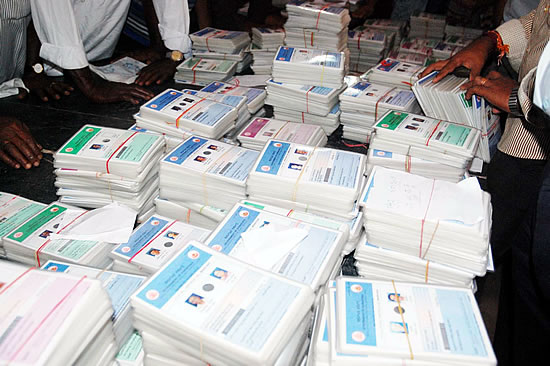BANGALORE: As the Congress government gears up to implement its Re 1 per kg rice scheme from July 10, it’s up against a huge challenge — how to weed out scores of bogus ration cards in the districts.
Chief minister Siddaramaiah announced that the government would supply of 30 kg of rice every month at Re 1 per kg to an estimated 87 lakhBPL (below poverty line) families. But Karnataka has more ration cards than families.
In 2010, when the BJP government partly computerised the PDS system, it found a whopping 1.72 crore ration cards, which is more than the total number of families in the state. As per the 2011 census, there are only 1.32 crore families. This is all because during the 2009 Lok Sabha polls, the previous BJP government liberally issued temporary ration cards based on self-declared affidavits to over 15 lakh families at one go.
Though various measures have been initiated over the past three years to weed out the bogus cards, officials said there are still about 30 lakh (14 lakh temporary cards and the rest by filing false affidavits) bogus cardholders. “Bogus are not just temporary cards issued by the previous government but also those cards procured by using fake names and false documents,” said R Vijay Kumar, an RTI activist who has exposed numerous ration card swindles.
Doubts are being raised whether the scheme will actually benefit the genuinely poor, considering the opaque public distribution system (PDS) in the state. Officials overseeing its implementation fear that benefits of the scheme would go down the drain unless the government doesn’t take steps to make the PDS transparent.
The major challenge before the department of food, civil supplies and consumer affairs will be to crack down on hoarding and blackmarketing of foodgrains to ensure cent per cent distribution of essential commodities to beneficiaries.
There have also been also several complaints of BPL families mortgaging their cards with fair price shops in return for monthly remuneration. The reported computerization of PDS hasn’t helped resolve the many problems plaguing the system.
Officialspeak
There’s a well-connected mafia in the diversion of foodgrains and kerosene meant for PDS to the local market. There have been numerous complaints from consumers that the monthly quota of foodgrains and kerosene was not reaching them despite the government releasing it to the shops. The quota is allegedly diverted to the black market.
Senior officer | food & civil supplies department

